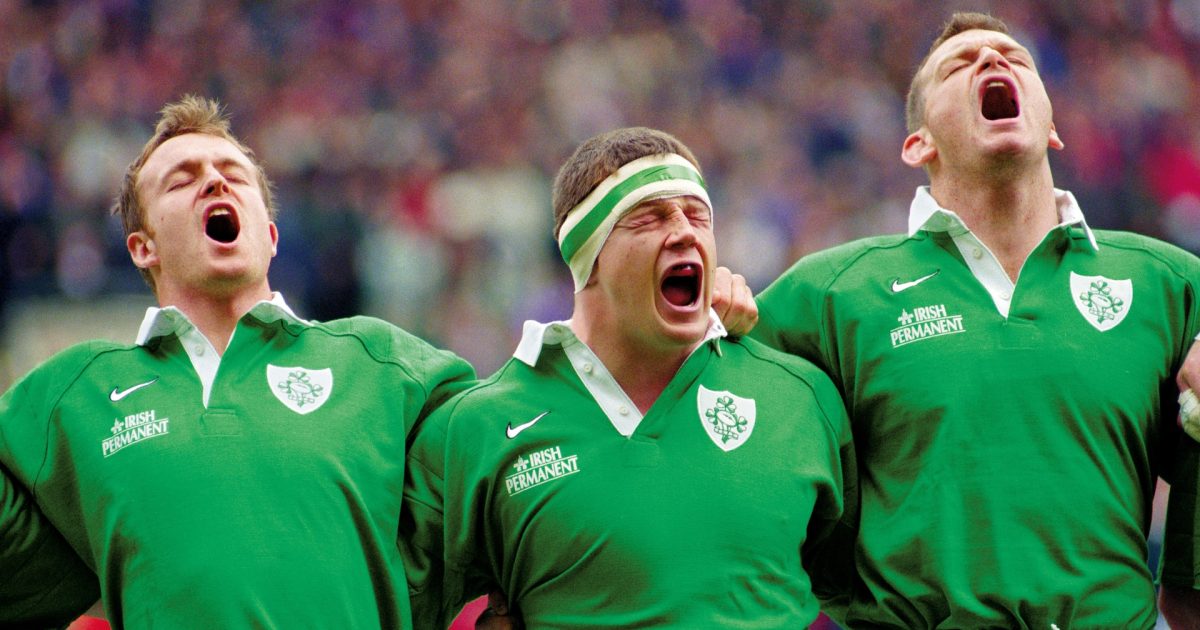Irish rugby 'in another lifetime': Pizzas, beer and late to bed

High-performance coach Craig White has paid tribute to Ireland winning back-to-back Guinness Six Nations titles, posting an insightful message on LinkedIn that explained how far off the pace the Irish were in the early years of professional rugby.
White, who now has worked 30 years in the pro game in a variety of roles with multiple teams, recalled how he was the first full-time fitness coach appointed to the Ireland team in 1998, and what he encountered was a very different situation to the ultra-pro set-up that now exists under Andy Farrell.
Ireland lost all four matches in the 1998 championship, leaving them with the wooden spoon, and they ultimately failed to reach the quarter-finals of the 1999 Rugby World Cup as they were eliminated in a play-off in Lens by then-underrated Argentina.
However, the Irish have since been transformed, winning Six Nations Grand Slams in 2009, 2018 and 2023 and championship titles in 2014, 2015 and 2024.
It’s a transformation that White has now praised in a social media post charting the difficult journey in the early days of Irish rugby professionalism.
📹 Watch the highlights between Ireland and Scotland in yesterday's match here ⬇️#GuinnessM6N #IRESCO pic.twitter.com/DlvLFGcGAz
— Guinness Men's Six Nations (@SixNationsRugby) March 17, 2024
“Huge congratulations to the Irish Rugby Football Union (IRFU) for winning back-to-back 6 Nations,” he began. “In another lifetime, 26 years ago in 1998, I became the first ever ‘full-time’ fitness coach to work with the Irish senior men’s team. It was at the start of the professional era. The game had only been professional for three years.
“What a great experience it was to try and change the ‘amateur habits’ of players back then. Let me tell you it wasn’t easy. I remember walking down the corridor of the hotel on 6 Nations match day in Dublin.
“There would be a few rooms with pizza boxes outside and the occasional beer (no names mentioned here). And to try and get players into bed before 22:00 was impossible.
“I also remember having constant battles with coaches and ‘old school’ teachers trying to convince them that their players needed to perform heavy weightlifting, and to do more specific rugby training and less linear interval running. I laugh when I think back to those days.
“The reason for this post is to inform people that Ireland were one of the big rugby nations that took the longest to adjust to the professional era. Yet, what a remarkable transformation we have seen over the last 26 years. It is unbelievable.
“The seed of this transformation in my opinion was in 1999. Liam Hennessy had been appointed as head of fitness for the whole organisation. His mission was to create a long-term pathway that included different phases of preparation, especially across the physical and technical areas of development. He was also my boss.
“I remember Liam working tirelessly with people like Eddie Wigglesworth and Stephen Aboud to build this long-term pathway. They travelled the globe speaking with experts from all over the world. They were patient. They wanted to ‘get it right’.
“Not only did they create a world-class pathway for players, it was also a pathway for coaches and practitioners with specific coaching certifications that relate to key areas of growth within a player’s playing cycle.
“Ireland were ahead of the game. They were one of the first, if not the first rugby nation to train and recruit specialist coaches related to different phases of a player’s growth. Des Ryan also contributed to the evolution of their long-term pathway in later years.
“But, it took them over 20 years to see the fruits of their labour. They should be honoured for their dedication and also for their patience. Excellence does not happen overnight.”


































At my age (59) the comments among my friends at the moment is reflecting back on the occasional wins in 5/6 nation competitions. Its laughable when you hear the negativity to the coaches and team due to the loss to England. What was said about Conor Murray was disgracefull.
To be mentioned at the level we are being spoken about on S African and New Zealand podcasts makes me proud and the vision and coaching has everything to thank for these great days.